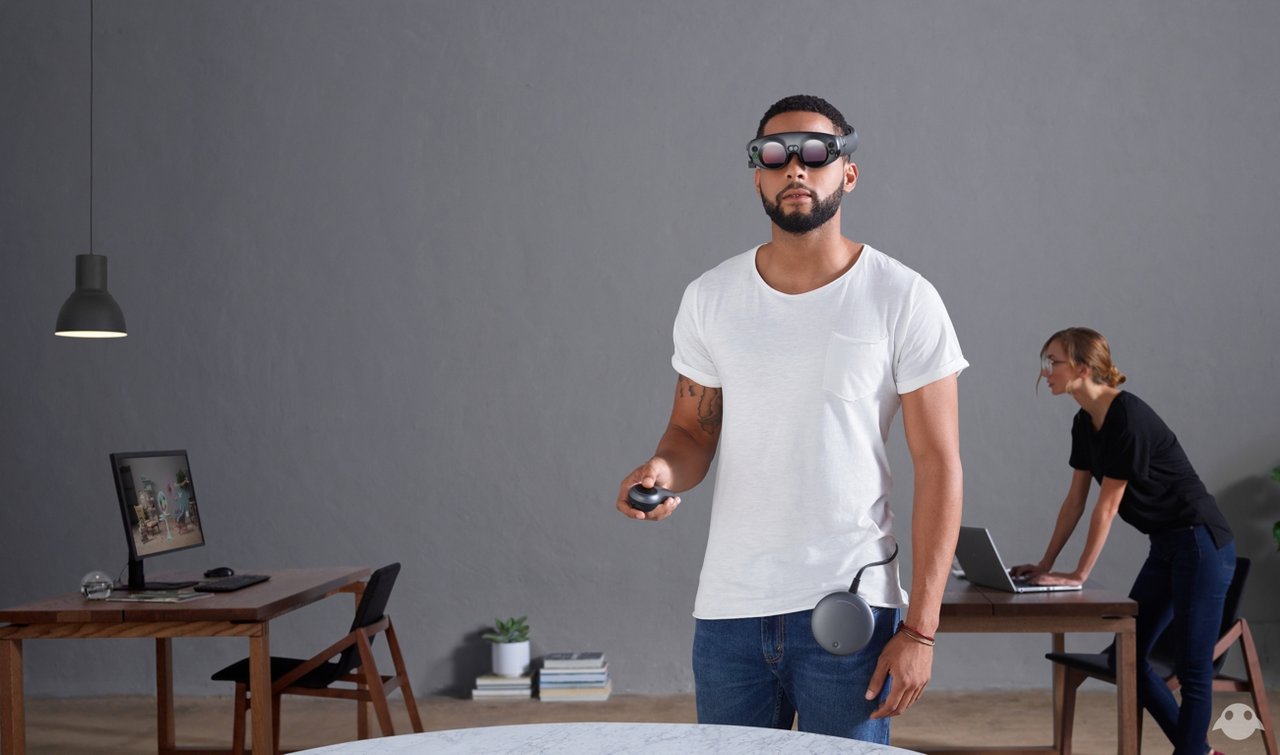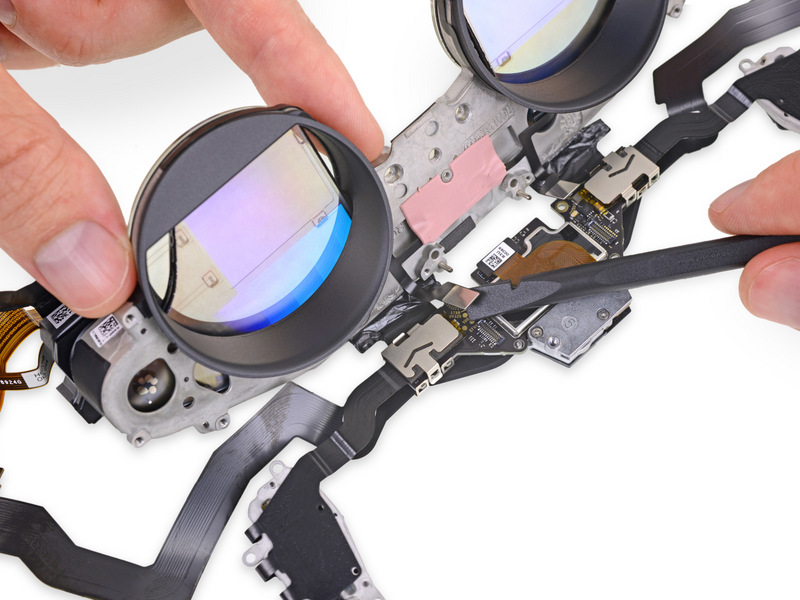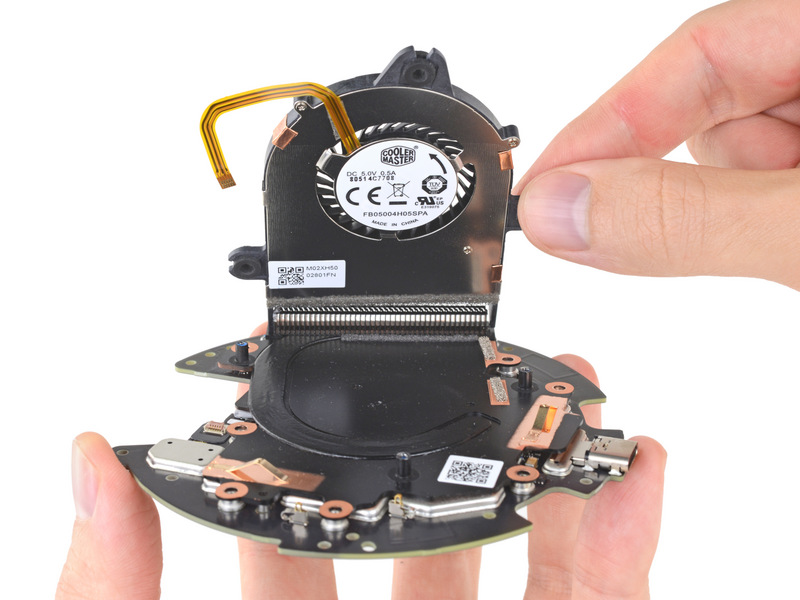Magic Leap One glasses - points for $ 2295 with maintainability 3 of 10

In recent years, only lazy media have not spoken about Magic Leap. After all, it is no joke, without having a finished product or even an alpha prototype in hand, to receive hundreds of millions of dollars from various investors. Until 2017, famous companies like Google, Alibaba and Qualcomm invested about $ 1.3 billion in Magic Leap. In October 2017, the startup received another $ 500 million.
In the same 2017, the company finally showed what it had been working on for several years in a row. These were virtual reality glasses. Only a prototype was shown, but it was clear from it that the gadget was much smaller in size than Hololens or Oculus Rift, slightly exceeding the size of the sport glasses. They are made in order to see virtual objects on top of the real world - that is, we are talking about augmented reality.

But Magic Leap One does not just superimpose a virtual image, they digitize the room in which their user is located. The device is able to “memorize” the location of various objects, thanks to which the user can interact with these objects. For example, place a virtual dresser against a real wall.
You can control the functions of glasses with gestures, including head movements, voice and gaze. Previously, one of the journalists who was lucky enough to try out a gadget in the case, told about one of the applications for glasses - then he saw a digital woman who came out of the doorway of the real room and looked at the user all the time, so the glasses carrier was even uncomfortable.
Above is a demonstration of points from 2016. In fact, the possibilities of the gadget are much wider than just entertainment. With their help, according to the developers, you can surf the net, make purchases, play, arrange virtual meetings and solve other problems.
In early August of this year in some regions of the United States started selling these points. Their price is higher than the cost of any other similar devices and amounts to $ 2,295. For about $ 500 more, you can get a developer kit. The points themselves consist of three elements. The first is the glasses themselves, which are called Lightwear, the second is the Lightpack laptop, the third is the controller. Lightwear uses a whole range of cameras and sensors to project images onto the user's environment.
The other day, iFixit experts disassembled the glasses to the last screw to find out what is inside. In their own words, "glasses are different from everything we have seen in the past."

As for the design of glasses, each lens is equipped with four infrared sensors to track the movement of the eyeball and the direction of a person’s gaze. Each lens is six-layered, the layers are “responsible” for working with light of a certain wavelength. In addition, three layers display content in the near distance, the other three are designed to work with distant focus.

The system configuration includes 8 GB of RAM, 128 GB of internal memory, the platform Nvidia Tegra X2 SoC. In addition, there is a video processing system with 512MB GDDR4 RAM and 4K resolution, plus a 60 fps video receiver. A wearable computer holds a large number of other chips, as well as a 36.77 watt battery.

Interestingly, the system does not determine the distance to objects and the orientation of glasses in space using a combination of accelerometer and gyroscope, as, for example, in mobile devices. Instead, three copper spirals embedded in the glasses are used. The characteristics of the magnetic field generated by the spirals allow the computer to evaluate the geometric characteristics of the surrounding space.

Representatives of iFixit note a large amount of glue, strange solutions for securing wires, as well as a battery, which is almost impossible to replace due to structural features. Assessment of the maintainability of points was 3 out of 10 points. In principle, it is not bad if we recall that some of the devices disassembled by iFixit received a unit or even zero.
